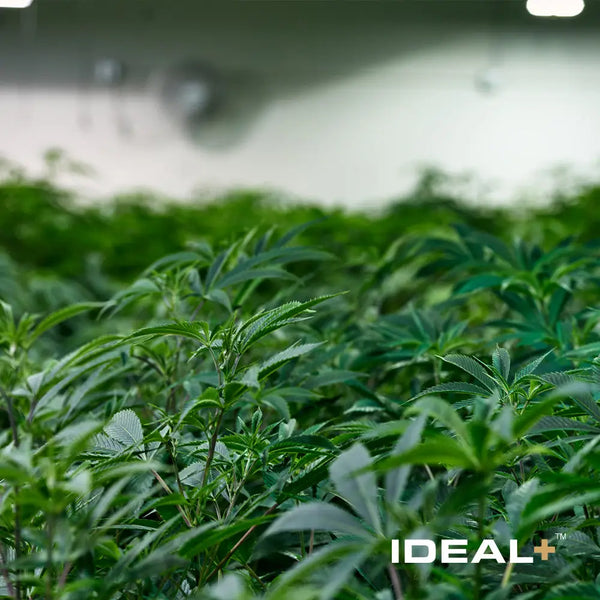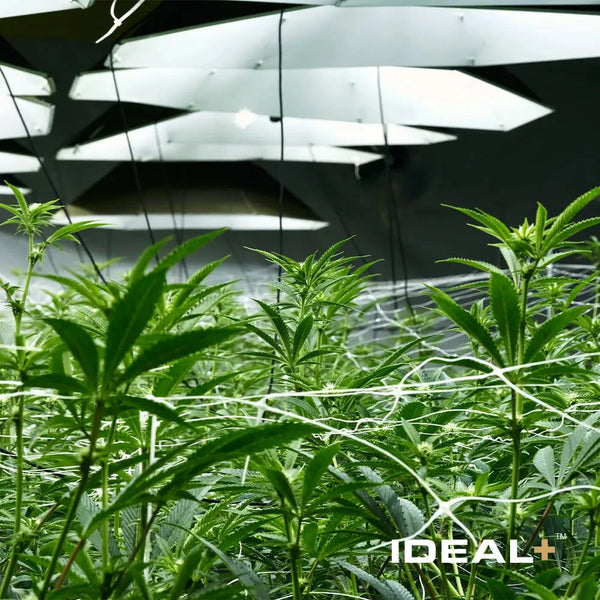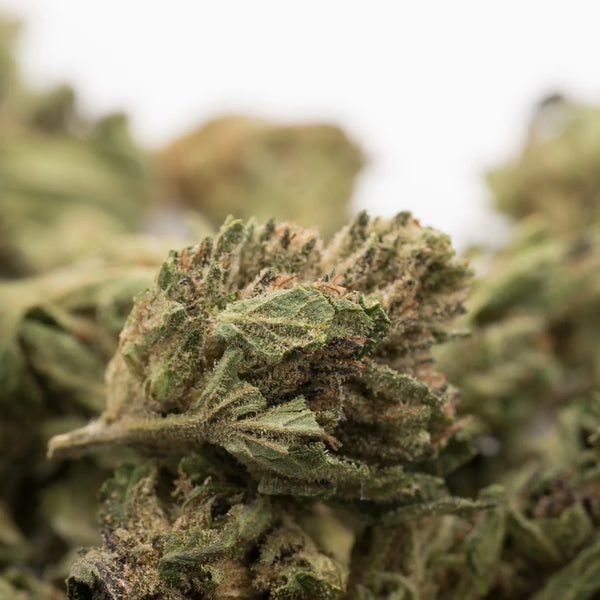No Products in the Cart
INDOOR THCA FLOWER 5g - $39.99 | GREENHOUSE THCA FLOWER 7g - $34.99

The cannabis industry has witnessed an unprecedented surge in high-THCA products over the past few years, transforming the landscape of both hemp and marijuana markets. From THCA flower and concentrates to vape cartridges and edibles, consumers now have access to products that deliver potent effects while navigating complex legal frameworks. However, with this explosive growth comes a critical responsibility: ensuring that every product reaching consumers has undergone rigorous THCA potency testing.
Why test for THCA? The answer extends far beyond simple regulatory compliance. Accurate THCA testing importance touches every aspect of the cannabis business ecosystem—from protecting consumer safety and maintaining legal compliance to preserving brand reputation and maximizing market opportunities. As the industry matures and regulatory scrutiny intensifies, businesses that prioritize comprehensive cannabis potency analysis position themselves for sustainable success.
The stakes have never been higher. Federal and state regulations continue to evolve, with THCA compliance testing requirements becoming more stringent across jurisdictions. Consumers are increasingly educated and demanding transparency through detailed Certificates of Analysis (COA requirements). Retailers and distributors refuse to carry products without proper documentation. Insurance companies require proof of rigorous testing protocols. The question is no longer whether to invest in testing, but how to make it a cornerstone of your quality assurance program.
This comprehensive guide explores why THCA potency testing matters for cannabis products, examining the multifaceted benefits of cannabinoid testing benefits from consumer safety to competitive positioning. Whether you're a cultivator, manufacturer, retailer, or simply an informed consumer, understanding why cannabis needs THCA testing is essential for navigating today's complex cannabis marketplace.
At the heart of why is THCA testing important lies a fundamental principle: consumer safety. Unlike many other consumer products, cannabis compounds like THCA convert to psychoactive THC when heated, making accurate potency information crucial for safe consumption. Without reliable testing, consumers face a dangerous guessing game with every purchase.
Consider the medical patient seeking consistent relief from chronic pain or the recreational consumer trying to avoid an overwhelming experience. Both depend on accurate labeling that can only come from rigorous product safety testing. When THCA content is misrepresented—whether overestimated or underestimated—consumers cannot make informed decisions about appropriate serving sizes.
The benefits of THCA potency testing in this context are clear: preventing accidental overconsumption that leads to adverse reactions, emergency room visits, and negative public perception of cannabis products. Testing laboratories use advanced chromatography techniques to measure THCA concentrations with precision, providing the data necessary for accurate product labeling and consumer dosing guidelines.
Overconsumption of cannabis products remains one of the industry's most significant challenges, particularly with the rise of highly concentrated THCA products. Flowers testing at 25-35% THCA, concentrates exceeding 90% purity, and edibles with unpredictable activation rates all require precise labeling to prevent adverse experiences.
Cannabis quality assurance programs that include comprehensive THCA testing help prevent these incidents by:
The importance of accurate THCA results cannot be overstated when considering vulnerable populations. New consumers, elderly patients, and individuals with low THC tolerance all rely on testing data to safely explore cannabis products. One mislabeled product can result in a traumatic experience that turns someone away from cannabis therapeutics permanently.
Modern cannabis consumers are sophisticated and skeptical—and rightfully so. Years of prohibition created an underground market where product quality varied wildly and safety standards were non-existent. Today's legal market must work diligently to overcome this legacy through transparency and accountability.
Third-party THCA potency testing serves as the cornerstone of this transparency. When businesses prominently display batch-specific COAs showing cannabinoid profiles, consumers gain confidence in product quality and company integrity. This transparency builds loyalty that translates directly to repeat purchases and positive word-of-mouth marketing.
Product quality control extends beyond THCA measurements to include testing for contaminants, pesticides, heavy metals, and microbials. However, potency testing remains the most visible indicator of quality that consumers use to evaluate products. Brands that invest in rigorous testing and proudly share results differentiate themselves in an increasingly crowded marketplace.
The distinction between medical and recreational cannabis use adds another layer to why THCA testing is important. Medical patients often require precise dosing to achieve therapeutic benefits without unwanted psychoactive effects. A patient treating nausea, inflammation, or seizures needs consistent THCA content to maintain symptom control.
Consumer safety testing enables healthcare providers to make informed recommendations and patients to titrate doses effectively. In states with medical cannabis programs, testing requirements typically exceed those for recreational products, recognizing that patient populations require additional protections.

The 2018 Farm Bill created a legal framework that distinguishes hemp (cannabis with ≤0.3% delta-9 THC) from marijuana, but the relationship between THCA and total THC continues to perplex businesses and regulators alike. Why test for THCA at the federal level? Because THCA converts to delta-9 THC through decarboxylation, and many jurisdictions use "total THC" calculations that include THCA when determining legal status.
The formula "Total THC = (THCA × 0.877) + Delta-9 THC" means that high-THCA hemp flower can easily exceed the 0.3% threshold when converted, creating legal ambiguity. Some states and federal authorities consider post-decarboxylation potency, while others focus solely on pre-decarboxylation measurements. This inconsistency makes THCA compliance testing essential for businesses operating in interstate commerce.
Legal compliance cannabis businesses must understand that the Drug Enforcement Administration (DEA) and U.S. Department of Agriculture (USDA) both have jurisdiction over hemp testing protocols. The USDA's hemp regulations specifically require testing for total THC concentration, emphasizing the critical nature of accurate THCA measurements. Failure to comply with these federal standards can result in crop destruction, loss of licenses, and criminal prosecution.
Perhaps the most challenging aspect of regulatory compliance is navigating the diverse requirements across different states. Each jurisdiction has established its own testing mandates, creating a complex patchwork that businesses must understand and follow.
California requires comprehensive testing through licensed laboratories for all cannabis products, with specific action limits for THCA potency variance. Colorado mandates testing for licensed medical and recreational products, with strict requirements for batch sampling and laboratory accreditation. Michigan, Illinois, Massachusetts, and other adult-use states each have unique protocols for cannabis potency analysis.
Even hemp-legal states have begun implementing testing requirements as high-THCA hemp products blur the lines between hemp and marijuana. Texas, for instance, has clarified that THCA converts to delta-9 THC and therefore counts toward legal limits. Florida, Virginia, and other states have enacted emergency rules addressing THCA products specifically.
The benefits of THCA potency testing in this regulatory context include:
Businesses that skip or falsify THCA testing importance face severe consequences that extend far beyond simple fines. Regulatory penalties for non-compliance can include:
Administrative Penalties:
Criminal Liability:
Civil Liability:
The importance of accurate THCA results becomes crystal clear when considering these penalties. The cost of comprehensive product safety testing pales in comparison to the financial and reputational devastation of regulatory enforcement actions.
Cannabis regulations continue to evolve rapidly, with new rules emerging regularly at federal, state, and local levels. Why cannabis needs THCA testing today may differ from requirements tomorrow, making it essential for businesses to maintain flexible, robust testing programs that can adapt to changing standards.
Several trends indicate where regulations are heading:
Businesses that embrace comprehensive THCA compliance testing now position themselves advantageously as regulations tighten. Proactive compliance demonstrates industry leadership and reduces the risk of being caught off-guard by sudden regulatory changes.
Even under carefully controlled cultivation and manufacturing conditions, cannabis products exhibit natural batch-to-batch variation in cannabinoid content. Factors including genetics, environmental conditions, harvest timing, curing processes, extraction methods, and storage all influence final THCA concentrations. Why is THCA testing important for quality control? Because measuring these variations enables manufacturers to understand their processes and make data-driven improvements.
Cannabis quality assurance professionals use testing data to identify trends and anomalies. When THCA levels fluctuate unexpectedly between batches, testing results provide crucial clues about what variables changed. Perhaps a different nutrient regimen affected cannabinoid production, or storage conditions degraded THCA content over time. Without testing, these variations remain invisible until consumers notice inconsistent effects.
The cannabinoid testing benefits for quality control include:
Product consistency represents one of the most significant challenges in cannabis manufacturing. Consumers expect that a product purchased today will deliver the same experience as the same product purchased last month. This consistency requires meticulous attention to every production step—and comprehensive THCA potency testing to verify results.
Manufacturing operations use testing data to implement product quality control protocols:
For Flower Products:
For Extraction and Concentrate Products:
For Edibles and Infused Products:
The importance of accurate THCA results in manufacturing cannot be overstated. Small measurement errors multiply throughout production processes, potentially resulting in final products that miss target specifications significantly.
In the age of social media and online reviews, a single batch of inconsistent or mislabeled products can devastate brand reputation instantly. Consumers who receive products weaker than expected feel cheated. Those who receive unexpectedly potent products may have adverse experiences. Both scenarios lead to negative reviews, social media complaints, and lost customer loyalty.
Consumer safety testing through rigorous THCA analysis protects brand reputation by ensuring that every product meets quality standards before reaching consumers. Brands known for consistent potency and accurate labeling command premium prices and customer loyalty in competitive markets.
Consider the reputational impact of these scenarios:
Without Testing: A brand releases a batch labeled "30% THCA" that actually contains 22% THCA. Customers notice weaker effects, post negative reviews, and question the company's integrity. Trust erodes, and competitors gain market share.
With Testing: The same batch is caught during quality control testing, prompting investigation into what processing variable changed. The batch is either relabeled accurately or reprocessed to meet standards, and consistent quality is maintained.
Product recalls represent one of the most expensive and damaging events that cannabis businesses face. Regulatory compliance authorities may mandate recalls for:
Comprehensive batch testing programs catch problems before products distribute, preventing costly recalls. The expense of testing every batch pales in comparison to recall costs:
The benefits of THCA potency testing for risk management extend beyond recall prevention to include liability protection in the event of consumer complaints or regulatory inquiries. Documentation showing comprehensive testing provides evidence of due diligence and good faith compliance efforts.

The legal cannabis market has become intensely competitive, with thousands of brands vying for consumer attention. High-quality THCA products represent a premium segment that commands higher prices—but only when consumers trust the potency claims. Why test for THCA from a marketing perspective? Because verified potency provides concrete differentiation in a market full of exaggerated claims.
Savvy marketers leverage testing data to position products effectively:
Legal compliance cannabis marketing requires careful attention to claims and language. While businesses can discuss testing processes and results, regulations limit claims about effects, medical benefits, or comparisons to pharmaceuticals. Testing data provides factual, verifiable information that supports marketing without triggering regulatory concerns.
The importance of accurate THCA results extends to consumer education initiatives that build brand authority and loyalty. Businesses that invest in explaining cannabinoid profiles, testing methodologies, and what different THCA levels mean for user experience position themselves as trusted advisors rather than mere product sellers.
Effective educational content addresses questions that consumers actually ask:
Brands that create valuable educational content—blog posts, videos, infographics, customer service training—differentiate themselves while driving organic traffic through search engine optimization. Consumers researching "why cannabis needs THCA testing" or "benefits of THCA potency testing" discover brands that prioritize quality and transparency.
Premium cannabis products justify higher prices through demonstrated quality, and comprehensive cannabis potency analysis provides the evidence consumers need to validate premium positioning. Testing enables businesses to:
Substantiate Quality Claims:
Target Sophisticated Consumers:
Create Product Differentiation:
The cannabinoid testing benefits for premium positioning cannot be matched through marketing hype alone. Consumers increasingly recognize testing as the objective arbiter of quality, making it essential for brands seeking premium market positions.
Retailers and distributors have become increasingly selective about which products they carry, with THCA compliance testing documentation becoming a prerequisite for shelf space. Major dispensary chains, online marketplaces, and distribution networks require:
Products lacking comprehensive testing simply won't be carried by premium retail channels, limiting market access and growth potential. Conversely, products with exemplary testing records gain preferential placement and promotional support from retailers who appreciate consistent quality and reduced liability risk.
Business owners frequently balk at testing expenses, viewing product safety testing as a burdensome regulatory requirement rather than a strategic investment. However, a clear-eyed financial analysis reveals that comprehensive testing delivers significant ROI through risk mitigation and market advantages.
Direct Testing Costs:
For a mid-sized operation producing 10 batches weekly, comprehensive testing might cost $150,000-$250,000 annually. This investment seems significant until compared to non-compliance costs:
Direct Non-Compliance Costs:
Indirect Non-Compliance Costs:
The financial calculus clearly favors investment in rigorous THCA potency testing. One serious compliance failure can cost more than a decade of comprehensive testing programs.
Cannabis businesses face unique insurance challenges, with carriers requiring extensive documentation of quality control and testing protocols. General liability policies, product liability coverage, and recall insurance all hinge on demonstrated commitment to product quality control.
Insurance underwriters evaluate:
Businesses with robust testing programs secure better insurance terms, lower premiums, and broader coverage. Those cutting corners on testing face policy exclusions, higher deductibles, and potential coverage denial for incidents related to untested products.
The importance of accurate THCA results extends to liability protection in litigation. When consumers file claims alleging harm from mislabeled or contaminated products, testing documentation provides critical defense evidence. Comprehensive batch testing demonstrates due diligence and good faith compliance efforts, potentially reducing liability exposure significantly.
The economic power in cannabis supply chains increasingly concentrates at the retail and distribution levels, with these gatekeepers dictating terms to cultivators and manufacturers. THCA compliance testing has become a non-negotiable requirement for accessing premium distribution channels.
Major retailers and distributors require:
Testing Documentation:
Quality Assurance Systems:
Products meeting these requirements gain access to the most profitable markets and retail environments, while those with incomplete testing documentation get relegated to lower-tier outlets or direct-to-consumer sales with limited volume potential.
Forward-thinking businesses view cannabis quality assurance testing as a profit center rather than a cost center. The ROI manifests through multiple channels:
Premium Pricing:
Market Access:
Operational Efficiency:
Risk Mitigation:
Customer Lifetime Value:
Businesses that embrace comprehensive THCA potency testing as a strategic investment consistently outperform competitors that view testing as a grudging regulatory obligation.

The cannabis testing landscape is maturing rapidly, with industry stakeholders working toward standardized protocols that address current inconsistencies. Understanding these emerging standards helps businesses prepare for future requirements and position themselves as industry leaders.
Laboratory Accreditation Evolution: ISO 17025 accreditation is becoming the baseline expectation for cannabis testing laboratories, but additional certifications are emerging:
Method Standardization: Various standard-setting organizations are developing harmonized testing protocols:
Measurement Uncertainty Requirements: Future COA requirements will likely mandate disclosure of measurement uncertainty—the range within which the true value likely falls. Instead of reporting "30% THCA," laboratories might report "30% ± 2% THCA at 95% confidence level." This transparency helps consumers and businesses understand testing limitations and make more informed decisions.
The benefits of THCA potency testing will expand as standardization improves accuracy, comparability, and reliability across different laboratories and jurisdictions. Businesses should monitor these developments and work with forward-thinking testing partners implementing emerging standards proactively.
Testing technology continues advancing rapidly, with innovations promising faster, more accurate, and more comprehensive cannabinoid analysis. Why is THCA testing important to follow these technological trends? Because early adopters gain competitive advantages through superior data quality and faster time-to-market.
Analytical Technology Advances:
High-Resolution Mass Spectrometry: Next-generation MS instruments provide more detailed cannabinoid profiling, distinguishing between isomers and detecting trace cannabinoids that traditional methods miss.
Portable Testing Devices: While not yet reliable enough to replace laboratory analysis, portable spectrometers are improving rapidly. Future iterations may enable preliminary testing at cultivation sites or manufacturing facilities.
Automated Sample Preparation: Robotic systems reduce human error and increase throughput, lowering per-sample costs while improving consistency.
AI-Assisted Analysis: Machine learning algorithms can detect patterns in testing data, identifying anomalies, predicting degradation, and optimizing cultivation/extraction parameters.
Data Management Innovations:
Blockchain Integration: Distributed ledger technology enables immutable testing records that follow products through supply chains, preventing fraud and enhancing traceability.
Cloud-Based COA Systems: Centralized databases allow real-time access to testing results for retailers, regulators, and consumers through QR codes or NFC tags.
Predictive Analytics: Aggregate testing data reveals trends enabling predictive modeling for harvest timing, optimal storage conditions, and product shelf life.
Businesses that embrace technological advances in cannabis potency analysis position themselves at the industry's cutting edge, attracting quality-conscious consumers and retail partners.
Several macro trends are influencing how why cannabis needs THCA testing evolves:
Consumer Sophistication Increases: Cannabis consumers grow more educated each year, demanding detailed information about products. The importance of accurate THCA results intensifies as consumers learn to interpret COAs and compare products based on objective data rather than marketing claims.
Medical Cannabis Expansion: As more states and countries adopt medical cannabis programs, patient populations require pharmaceutical-grade testing standards. Medical product testing requirements typically exceed recreational standards, driving overall industry quality improvements.
International Market Development: Export opportunities to international markets require compliance with destination country regulations, many of which mandate comprehensive testing. European Union countries, for example, have strict pharmaceutical testing requirements for CBD and cannabis products.
Recreational Market Maturation: As recreational markets mature beyond early adopters to mainstream consumers, quality and safety expectations rise. Later-stage cannabis markets resemble alcohol and tobacco industries where testing and quality control are fundamental expectations.
Hemp-Derived Product Regulation: The explosion of high-THCA hemp products has triggered regulatory responses across jurisdictions. Future regulations will almost certainly require more stringent THCA compliance testing for hemp products, potentially including ongoing batch testing rather than pre-harvest testing alone.
Why test for THCA beyond current minimum requirements? Because regulations invariably tighten over time, and businesses that exceed today's standards are best positioned for tomorrow's requirements.
Proactive preparation strategies include:
Implement Robust Systems Now:
Monitor Regulatory Developments:
Build Flexible Infrastructure:
Demonstrate Industry Leadership:
The benefits of THCA potency testing compound over time for businesses that view compliance as an opportunity rather than a burden. Industry leaders help shape regulations rather than merely reacting to mandates, ensuring that rules reflect operational realities and scientific capabilities.
The question "why is THCA testing important" has a multifaceted answer encompassing consumer safety, legal compliance, quality assurance, market positioning, and financial performance. As the cannabis industry continues maturing from its prohibition roots into a sophisticated, regulated market, comprehensive THCA potency testing has transitioned from optional to essential.
Consumer trust forms the bedrock of sustainable cannabis businesses, and that trust begins with product safety testing that ensures accurate labeling and consistent quality. Consumers deserve to know exactly what they're purchasing and consuming, whether seeking medical relief or recreational enjoyment. Testing provides this fundamental transparency.
Legal compliance represents not merely a regulatory burden but a business imperative. THCA compliance testing documentation protects businesses from devastating penalties, preserves licenses worth millions of dollars, and demonstrates good faith efforts to operate within complex regulatory frameworks. As regulations continue evolving, testing programs provide the flexibility to adapt quickly to new requirements.
Product quality control through rigorous testing separates professional operations from amateur ventures. Consistent potency, validated through batch testing, builds brand reputations that command premium prices and customer loyalty. In competitive markets, quality differentiation derived from comprehensive testing provides sustainable advantages that marketing alone cannot achieve.
Financial analysis consistently demonstrates that investment in cannabis quality assurance testing delivers strong returns through risk mitigation, market access, operational efficiency, and brand value creation. The cost of testing pales compared to the potential expenses of non-compliance, recalls, liability, and reputation damage.
Cannabis businesses at any stage can take concrete steps to enhance their testing programs:
Immediate Actions:
Medium-Term Investments:
Long-Term Strategic Planning:
The importance of accurate THCA results means that laboratory selection represents one of the most critical decisions cannabis businesses make. Evaluate potential testing partners based on:
Accreditation and Credentials:
Technical Capabilities:
Operational Excellence:
Business Considerations:
The cannabis industry stands at a pivotal moment where professionalization accelerates and quality standards rise. Businesses that embrace comprehensive THCA potency testing as a core value proposition—rather than a grudging compliance obligation—will thrive in this evolving landscape.
High-quality THCA products represent the future of cannabis, with informed consumers demanding transparency and consistency. Testing provides the objective data necessary to meet these expectations while navigating complex regulatory environments and building sustainable competitive advantages.
Why cannabis needs THCA testing ultimately comes down to a simple principle: quality matters. In an industry emerging from decades of prohibition into legitimate commerce, testing represents the foundation upon which trust, safety, compliance, and success are built. Businesses that recognize this truth and invest accordingly will lead the industry into its next chapter of growth and maturation.
Q: How much does THCA potency testing typically cost?
A: Basic potency testing ranges from $50-100 per sample, while comprehensive compliance panels including potency, pesticides, heavy metals, and microbials cost $150-300. Pricing varies by state, laboratory, and turnaround time requirements. Volume discounts are typically available for businesses testing multiple batches regularly.
Q: How long does THCA testing take?
A: Standard testing typically requires 3-7 business days from sample receipt to result delivery. Expedited testing can provide results in 24-48 hours for additional fees. Planning ahead and establishing regular testing schedules with your laboratory partner ensures results arrive when needed without paying premium expedite fees.
Q: Can I use the same THCA test results for multiple states?
A: Generally no—each state has specific testing requirements, approved laboratories, and protocols. While some states accept out-of-state testing for specific purposes, most require testing through state-licensed laboratories. Businesses operating in multiple states must understand each jurisdiction's unique requirements and maintain separate testing documentation.
Q: What's the difference between THCA and total THC testing?
A: THCA testing measures the non-psychoactive acid form of THC present in raw cannabis. Total THC calculations use the formula: Total THC = (THCA × 0.877) + Delta-9 THC, representing the maximum THC content after complete decarboxylation. Hemp compliance typically uses total THC calculations, making this distinction critical for legal classification.
Q: How accurate is cannabis potency testing?
A: Reputable ISO 17025 accredited laboratories typically achieve accuracy within ±10% of the true value for major cannabinoids like THCA. However, measurement uncertainty exists due to sampling variability, analytical limitations, and cannabinoid instability. Understanding these limitations helps businesses interpret results appropriately and set realistic quality control specifications.
Q: Do I need to test every batch of cannabis products?
A: Most state regulations require testing of every commercial batch before sale. Even where not legally mandated, testing every batch represents best practice for quality control, liability protection, and consumer safety. The cost of testing is minimal compared to the risks of releasing untested products.
Q: How should I store samples before sending them for THCA testing?
A: Store samples in airtight, light-proof containers at cool temperatures (ideally refrigerated) to minimize cannabinoid degradation. Ship samples with cold packs when necessary and minimize time between sampling and testing. Proper handling preserves cannabinoid content, ensuring test results accurately reflect product composition.
Q: What should I do if a batch fails THCA potency testing?
A: First, confirm the result by retesting. If failure is confirmed, investigate the cause—was potency unexpectedly high or low? Can the product be relabeled accurately, blended with other batches, or reprocessed? Work with your laboratory and compliance consultant to understand options while maintaining regulatory compliance. Document everything for quality improvement purposes.